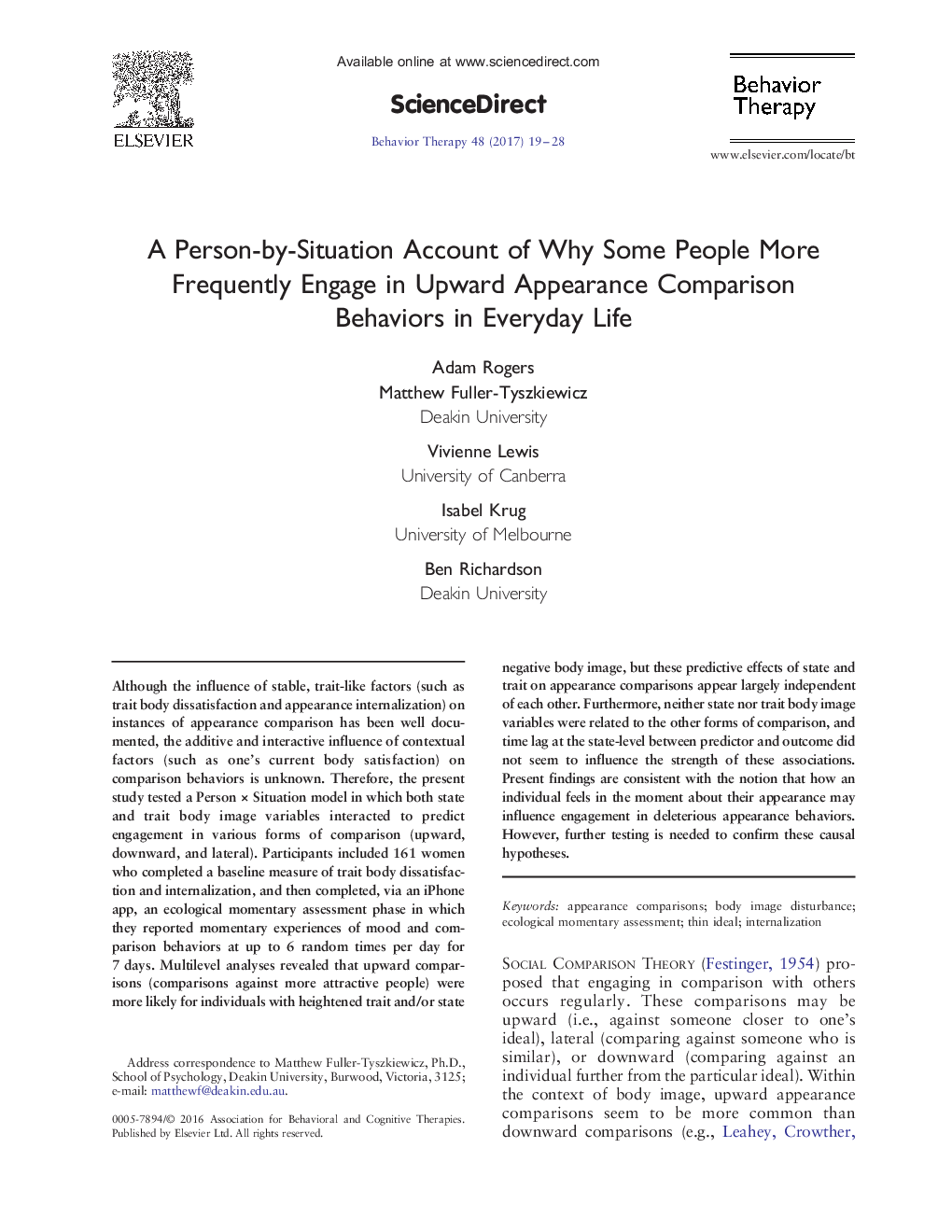ترجمه فارسی عنوان مقاله
یک حساب کاربری شخصی چرا برخی از افراد اغلب در رفتارهای مقایسه در رفتار روزانه به کار می روند؟
عنوان انگلیسی
A Person-by-Situation Account of Why Some People More Frequently Engage in Upward Appearance Comparison Behaviors in Everyday Life
| کد مقاله | سال انتشار | تعداد صفحات مقاله انگلیسی |
|---|---|---|
| 131414 | 2017 | 10 صفحه PDF |
منبع

Publisher : Elsevier - Science Direct (الزویر - ساینس دایرکت)
Journal : Behavior Therapy, Volume 48, Issue 1, January 2017, Pages 19-28
ترجمه کلمات کلیدی
مقایسه های ظاهری، اختلال تصویر بدن، ارزیابی لحظه ای اکولوژیکی، ایده آل نازک، درونی سازی،
کلمات کلیدی انگلیسی
appearance comparisons; body image disturbance; ecological momentary assessment; thin ideal; internalization;

